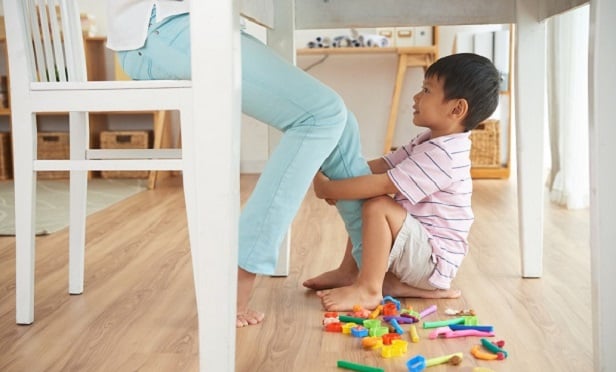The gender role shift continues, and it could be putting morestress on young men than on their female spouses.
|Related: Women as sole breadwinners gaining fast onmen
|That’s what research from a University of Connecticut sociology teamreported after it reviewed data on the effects of taking on greatereconomic or household responsibilities. Young husbands tended toreport slightly less robust overall health when they took ongreater financial responsibility for their families, while youngwomen generally reported feeling healthier by doing so.
|The team, led by Christina Munsch, studied Bureau of LaborStatistics data on 9,000 heterosexual married couples betweenthe ages of 18 and 32. They used a psychological well-beingmeasurement tool to evaluate the data.
|What emerged was a picture of young men reporting a slightlyless feeling of well-being when they contributed twice as much tothe household piggy bank as did their wives. Married young men whocontributed equally reported feeling a great sense ofwell-being.
|Related: 7 reasons women face greater retirement challengesthan men
|The difference wasn’t huge — the equal contributors’ averagescore was 3.33 on a 4-point scale, compared to 3.27 for the doublecontributors. But, Munsch told CNN Money, that slight differencewasn’t the whole story. The score dropped to 3.17 for men who werebringing in 100 percent of the dough.
|Meanwhile, women in the study who were completely dependent upontheir hubbies for household money reported the lowest overallwell-being score: 3.08. And those who were the least economicallydependent had an average score of 3.17 — equal to the “low” scoreof the men who were the main breadwinners.
|Munsch said she thinks the trend is a reflection of the desireamong millennials to have more “egalitarian relationships.” Men andwomen in that age group aren’t hidebound by the “traditional” rolestheir parents learned as children. And, in fact, it suggests thatmore men want to stay at home than in any past generation.
|Related: Life choices aren't to blame for gender paygap
|“For women, because there isn't the expectation that you’regoing to make as much money as possible for your family no matterthe cost, I think they're much more likely to ask themselves, ‘Oh,is this what I really want to do?’” Munsch says. “And so when womendo go into these high-level occupations, there’s more of a matchbetween their preferences. So their psychological well-being isgoing to improve, whereas for men, it's not. … This is what[millennials] prefer when you ask ‘what kind of relationship do youwant?’ They envision both partners contributing financially andboth partners taking care of domestic responsibilities.”
Complete your profile to continue reading and get FREE access to BenefitsPRO, part of your ALM digital membership.
Your access to unlimited BenefitsPRO content isn’t changing.
Once you are an ALM digital member, you’ll receive:
- Critical BenefitsPRO information including cutting edge post-reform success strategies, access to educational webcasts and videos, resources from industry leaders, and informative Newsletters.
- Exclusive discounts on ALM, BenefitsPRO magazine and BenefitsPRO.com events
- Access to other award-winning ALM websites including ThinkAdvisor.com and Law.com
Already have an account? Sign In
© 2024 ALM Global, LLC, All Rights Reserved. Request academic re-use from www.copyright.com. All other uses, submit a request to [email protected]. For more information visit Asset & Logo Licensing.








